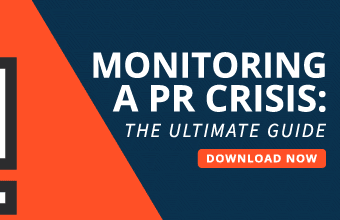It’s rare that you will have a lot of warning when a PR crisis is about to land on you. When it happens, the temptation to “move fast,” to react quickly and without a long-term plan, will be very strong. People will be saying things and sharing things that are embarrassing and angering. You will be frustrated and feel the need to lash out.
Don’t do it. The first response in any PR crisis can set the tone for everything that comes next.
Just ask United Airlines and Michigan State University. So, what you say first in a PR crisis is absolutely critical to building a productive narrative and protecting the process going forward.
First, consider the legal ramifications of your message
A good example of this is Carlos Ghosn, the embattled CEO that is headed to court over serious charges. Whatever he says, when he is allowed to speak to the media, could have a profound effect on his case, either positively or negatively. In fact, he may not be allowed, legally, to speak at all. Still, though, someone associated with the brand will need to make a statement about the situation. That, too, could impact both Ghosn and the brand he very recently represented, Nissan.
After considering the legal ramifications of your initial crisis PR message, it’s important to understand that, whatever it is at the moment, public perception of your brand and your image is about to shift. As more evidence comes out related to the crisis, and more people become aware of the news, their perception of your brand will change. But how, and in what way?
In most cases, you will not be in total control of what people think once they learn about the PR crisis. No matter what you say, there will be other competing narratives vying to create the reality people accept. You could certainly influence that reality, if your message is good, clear, and connective.
One of the most important keys to being connective is authenticity
If you owe your audience an apology, offer it, and do so carefully. Be genuine, be warm, admit mistakes if you are aware of them. It will do your reputation no good in the long run to pretend not to know things everyone else is already aware of.
Remember, too, that an apology need not be an admission of guilt. It can simply be a sincere expression of empathy with those who have been hurt by a situation. If that’s the case and that’s your message, be clear about it. Let people know you care, without taking the blame.
With that in mind, under no circumstances should you come out and say, emphatically, that “nothing happened” or “no wrong occurred.” Even if you’re fairly certain things are not being accurately reported, in your first statement during a PR crisis, it’s best to hedge a bit. Let people know you’re concerned, and that you’re looking into the situation. Once you offer an emphatic statement, you’re stuck with it, and that can come back to bite you.
Do not project or prognosticate
Don’t allow yourself to be baited into speculating. Disclose the facts that you are comfortable disclosing and refuse all opportunities to ad-lib or speculate. Leave that to the pundits. Let people know you’re a source of facts and don’t play to the gossip.
Finally, be sure your messaging is clear, authoritative, and definitive
Take responsibility for the narrative and do your best to maintain control of it.








